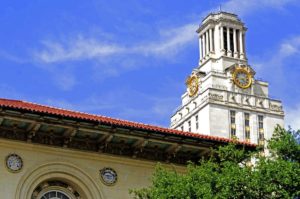Summer Program in Partial Differential Equations 2021
May 17-21, 2021 & May 24-28, 2021

This summer program provides two weeks of concentrated study of topics in Analysis at graduate level. The program is supported by the Research Training Grant (RTG) “Analysis of Partial Differential Equations”. The multidisciplinary character of the program will expose participants to topics that are commonly perceived as belonging to “different” areas of Analysis. One goal of the program is to educate the participants to see unity across these different areas and to approach Analysis from a more comprehensive viewpoint.
The program will offer, on each of the two weeks, two 5-lectures courses on current research topics, accompanied by a 5-lecture course of more introductory character. All the lectures will be hosted on Zoom.
Lectures will be followed by daily discussion sessions and office hours. During discussion sessions students will work on sets of problems related to the three courses of the week. Students will be divided in small groups for the discussion sessions and groups will be periodically visited by course instructors and TAs. Problem sets will be turned in by the Sunday at the end of each week and students will receive feedback on their solutions. Discussion sessions and office hours will be organized with the support of dedicated software (Jamboard, Slack, Sococo, etc.).
For organizational purposes, the school will be able to accomodate only a limited number of participants.
Registration is now closed.
ORGANIZERS
Phil Isett & Francesco Maggi
WEEK ONE — May 17 – 21, 2021
Advanced Course #1: Robert Haslhofer (University of Toronto)
Advanced Course #2: Connor Mooney (UC Irvine)
Introductory Course #1: Francesco Maggi (UT Austin)
WEEK TWO — May 24 – 28, 2021
Advanced Course #3: Tarek Elgindi, (UC San Diego)
Advanced Course #4: Sung-Jin Oh (UC Berkeley)
Introductory Course #2: Phil Isett (UT Austin)
TITLES & ABSTRACTS (in progress)
AC#1: Mean curvature flow of surfaces
by Robert Haslhofer
Abstract: Mean curvature flow is the most natural evolution equation in extrinsic geometry, and shares many features with Hamilton’s Ricci flow from intrinsic geometry. In this lecture series, I will provide an introduction to the mean curvature flow of surfaces, with a focus on the analysis of singularities. We will see that the surfaces evolve uniquely through neck singularities and non-uniquely through conical singularities. Studying these questions, we will also learn many general concepts and methods, such as monotonicity formulas, epsilon-regularity, blowup analysis, and weak solutions, that are of great importance in the analysis of a wide range of PDEs.
AC#2: Hilbert’s 19th problem revisited
by Connor Mooney
Abstract: Hilbert’s 19th problem asks whether the solutions of regular problems in the calculus of variations are always analytic. This problem was solved in the 1950s by De Giorgi and Nash. However, various generalizations of the problem, motivated by applications to fluids, elasticity, and geometry, are actively studied today. We will discuss several of these problems, some of which were solved recently and others which remain open.
AC#3: On the Well-posedness of the Incompressible Euler Equations
by Tarek Elgindi
Abstract: We will start with a crash course on the classical well-posedness theory for the incompressible Euler equation including arguments for local and global existence. We will then discuss various constructions of infinite time blow-up for the 2d Euler equations, results on 1d models, and then some ideas toward finite-time blow up for the 3d Euler equation.
AC#4: On the Cauchy problem for quasilinear dispersive PDEs
by Sung-Jin Oh
Abstract: Quasilinear dispersive PDEs often arise in fluid dynamics and plasma physics as effective models. The goal of this lecture series is to provide an introduction to the theory of local well-/ill-posedness of the Cauchy problem for such equations. In the first part, I will cover classical concepts that are relevant to wellposedness, such as hyperbolicity, energy estimate, Mizohata condition, local smoothing estimate etc. In the second part, I will discuss some complementary ill(!)-posedness results. A particular emphasis will be given to the phenomenon of degenerate dispersion, which is a very strong instability mechanism for conservative quasilinear dispersive PDE.
IC#1: An introduction to the Calculus of Variations and Gradient Flows
by Francesco Maggi
Abstract: This introductory course is planned to support the two advanced courses of week one with background material on first and second variation formulae, gradient flows, and related arguments.
IC#2: Distribution theory with Applications
by Phil Isett
Abstract: We will develop the basics of distribution theory and give applications to linear PDE and Fourier analysis. Topics to be addressed include definition of distributions, basic operations involving distributions, pullback of distributions, approximation by smooth functions, applications to classical analysis, fundamental solutions and representation formula for various linear PDE, and a proof of the Fourier inversion formula.